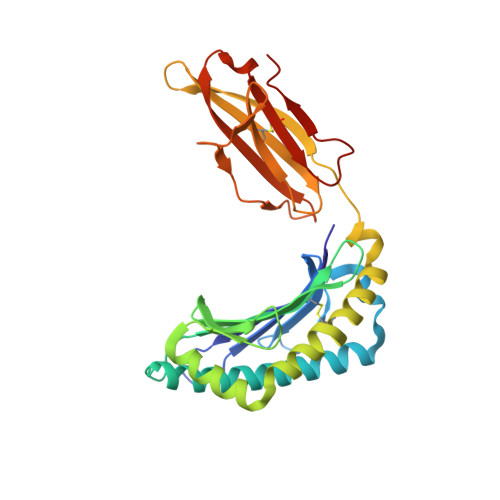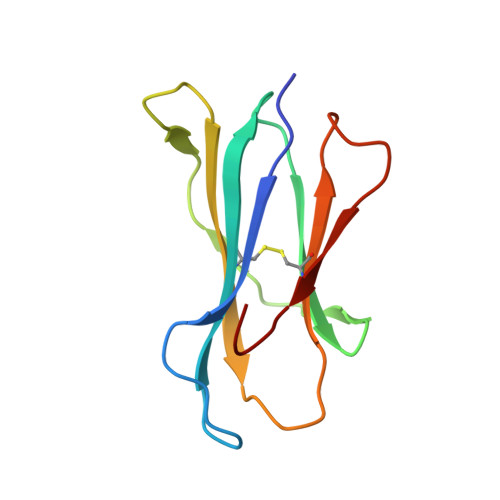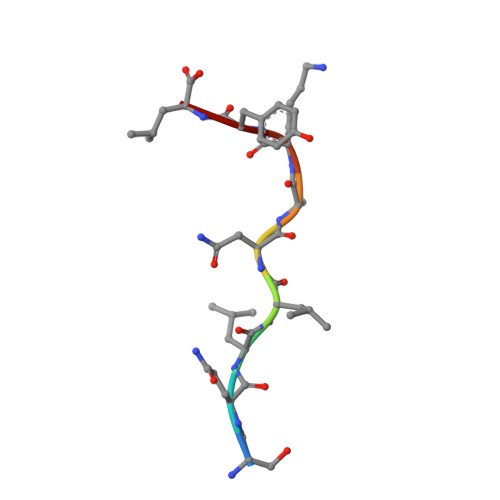A T Cell Receptor Locus Harbors a Malaria-Specific Immune Response Gene.
Van Braeckel-Budimir, N., Gras, S., Ladell, K., Josephs, T.M., Pewe, L., Urban, S.L., Miners, K.L., Farenc, C., Price, D.A., Rossjohn, J., Harty, J.T.(2017) Immunity 47: 835-847.e4
- PubMed: 29150238
- DOI: https://doi.org/10.1016/j.immuni.2017.10.013
- Primary Citation of Related Structures:
5WLG, 5WLI - PubMed Abstract:
Immune response (Ir) genes, originally proposed by Baruj Benacerraf to explain differential antigen-specific responses in animal models, have become synonymous with the major histocompatibility complex (MHC). We discovered a non-MHC-linked Ir gene in a T cell receptor (TCR) locus that was required for CD8 + T cell responses to the Plasmodium berghei GAP50 40-48 epitope in mice expressing the MHC class I allele H-2D b . GAP50 40-48 -specific CD8 + T cell responses emerged from a very large pool of naive Vβ8.1 + precursors, which dictated susceptibility to cerebral malaria and conferred protection against recombinant Listeria monocytogenes infection. Structural analysis of a prototypical Vβ8.1 + TCR-H-2D b -GAP50 40-48 ternary complex revealed that germline-encoded complementarity-determining region 1β residues present exclusively in the Vβ8.1 segment mediated essential interactions with the GAP50 40-48 peptide. Collectively, these findings demonstrated that Vβ8.1 functioned as an Ir gene that was indispensable for immune reactivity against the malaria GAP50 40-48 epitope.
Organizational Affiliation:
Department of Microbiology, University of Iowa, Iowa City, IA 52242, USA.

















